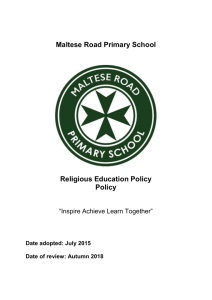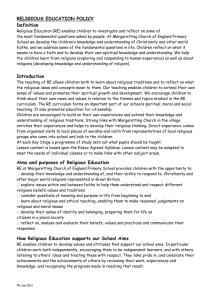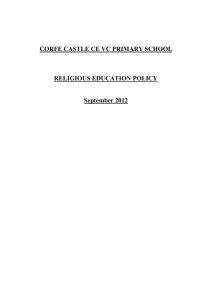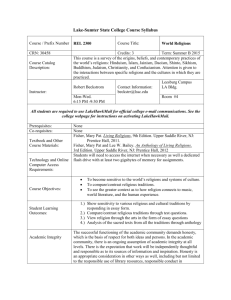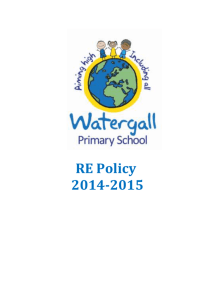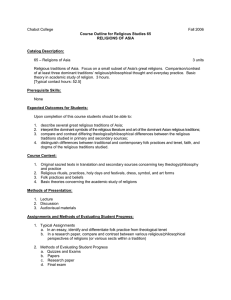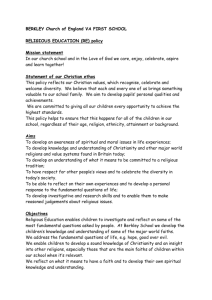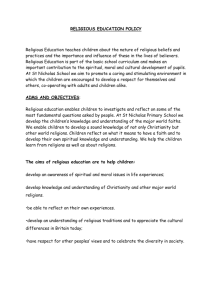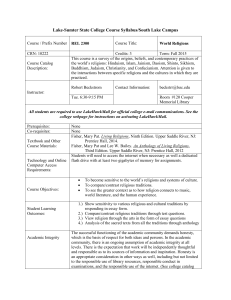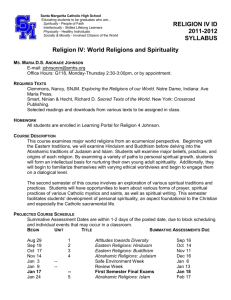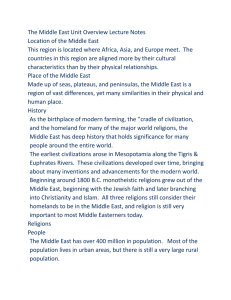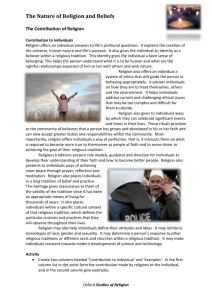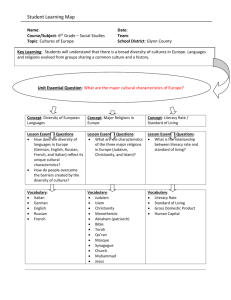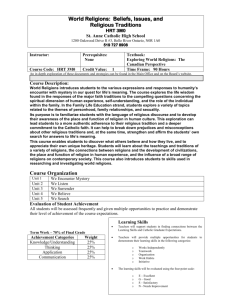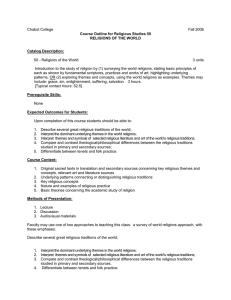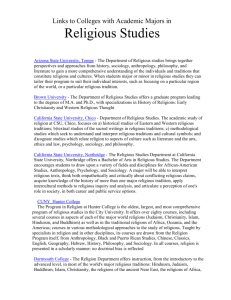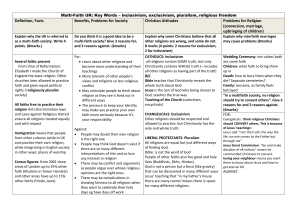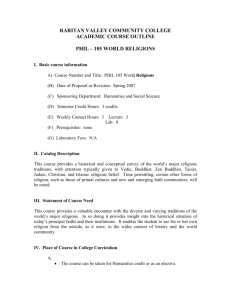Auriol Junior School Religious Education Policy
advertisement
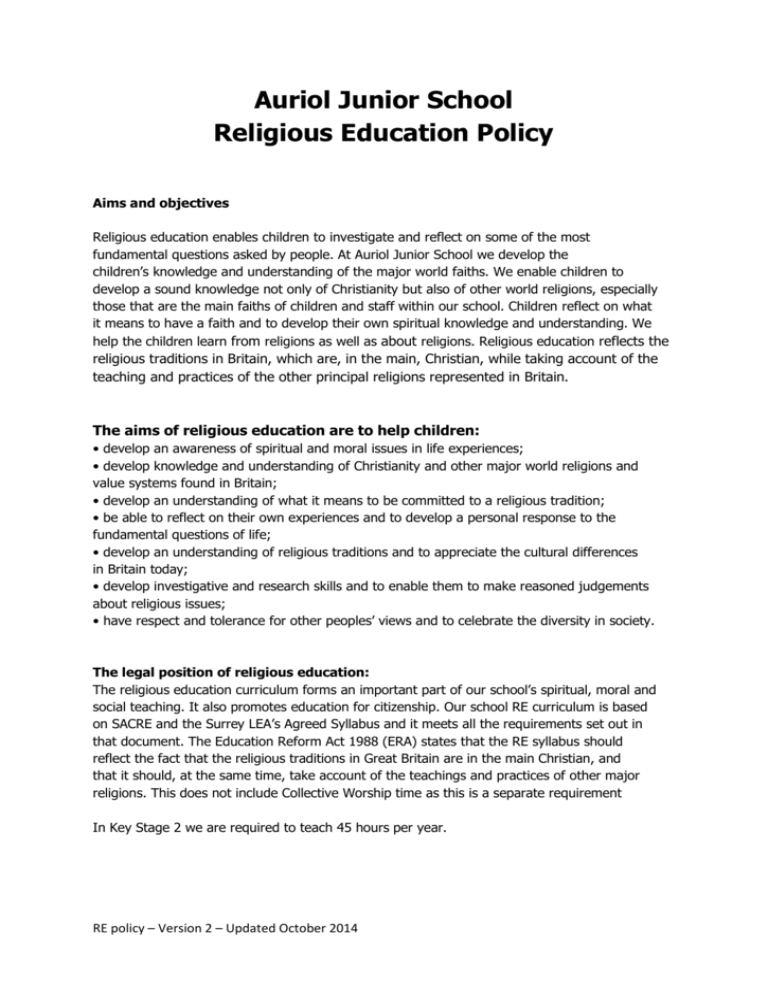
Auriol Junior School Religious Education Policy Aims and objectives Religious education enables children to investigate and reflect on some of the most fundamental questions asked by people. At Auriol Junior School we develop the children’s knowledge and understanding of the major world faiths. We enable children to develop a sound knowledge not only of Christianity but also of other world religions, especially those that are the main faiths of children and staff within our school. Children reflect on what it means to have a faith and to develop their own spiritual knowledge and understanding. We help the children learn from religions as well as about religions. Religious education reflects the religious traditions in Britain, which are, in the main, Christian, while taking account of the teaching and practices of the other principal religions represented in Britain. The aims of religious education are to help children: • develop an awareness of spiritual and moral issues in life experiences; • develop knowledge and understanding of Christianity and other major world religions and value systems found in Britain; • develop an understanding of what it means to be committed to a religious tradition; • be able to reflect on their own experiences and to develop a personal response to the fundamental questions of life; • develop an understanding of religious traditions and to appreciate the cultural differences in Britain today; • develop investigative and research skills and to enable them to make reasoned judgements about religious issues; • have respect and tolerance for other peoples’ views and to celebrate the diversity in society. The legal position of religious education: The religious education curriculum forms an important part of our school’s spiritual, moral and social teaching. It also promotes education for citizenship. Our school RE curriculum is based on SACRE and the Surrey LEA’s Agreed Syllabus and it meets all the requirements set out in that document. The Education Reform Act 1988 (ERA) states that the RE syllabus should reflect the fact that the religious traditions in Great Britain are in the main Christian, and that it should, at the same time, take account of the teachings and practices of other major religions. This does not include Collective Worship time as this is a separate requirement In Key Stage 2 we are required to teach 45 hours per year. RE policy – Version 2 – Updated October 2014 Teaching and learning style We base our teaching and learning style in RE on the key principle that good teaching in RE allows children both to learn about religious traditions and to reflect on what the religious ideas and concepts mean to them. Our teaching enables children to extend their own sense of values and promotes their spiritual growth and development. We encourage children to think about their own views and values in relation to the themes and topics studied in the RE curriculum. Our teaching and learning styles in RE enable children to build on their own experiences and extend their knowledge and understanding of religious traditions. We aim to invite people of different faiths or parents into school to talk to the children about special events / celebrations within their religion. Assessment recording and reporting in R.E. Assessment is regarded as an integral part of teaching and learning. It is a continuous process which informs planning. The principles for assessment for learning will support the assessment process; clear learning outcomes, specific high level questioning to assess understanding, evaluative marking and observations of children at work. Teachers record progress levels for each child, using national level descriptors from the Peterborough Agreed Syllabus, and assessment moderation exercises are structured into staff development opportunities. Learning objectives will be clear in each lesson, enabling children to assess if they have met the learning criteria. Withdrawal Parents have the legal right to withdraw their children from RE and Acts of Worship. Parents wishing to exercise this right must make an appointment to discuss this with the head teacher prior to withdrawing their child. Staff Responsible SLT Area of Responsibility Date approved by Governors Autumn 2013 RE policy – Version 2 – Updated October 2014 Written/Reviewed Half Term 1 2014 Responsible SLT Review Due Half Term 1 2015
